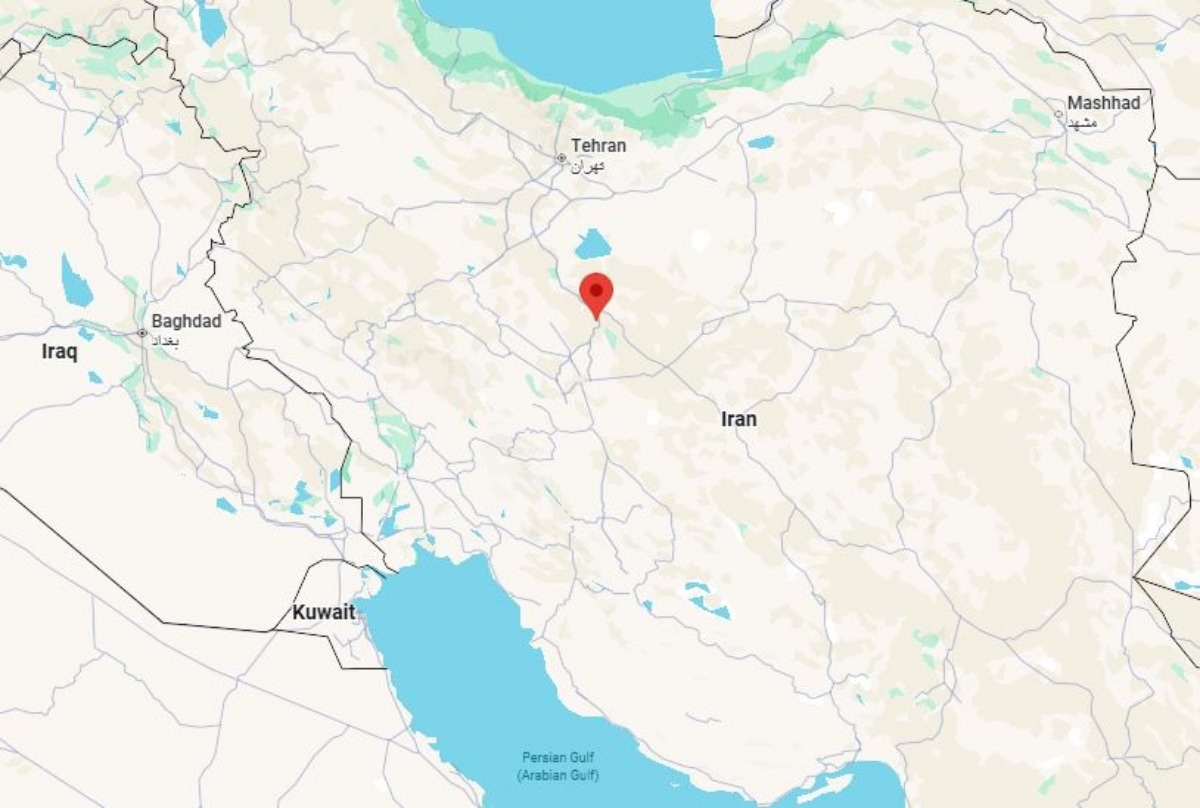Opinion Can Israel’s attack on Iran’s nuclear assets lead to an explosion or radiation leak?
Israel’s strikes on Iranian nuclear facilities are undoubtedly dangerous. But a nuclear calamity is unlikely
 This satellite image provided by Maxar Technologies shows the Natanz nuclear facility in Iran on January 24, 2025. (Maxar Technologies via AP)
This satellite image provided by Maxar Technologies shows the Natanz nuclear facility in Iran on January 24, 2025. (Maxar Technologies via AP) Israel has struck major nuclear facilities in Iran this morning, including the country’s Natanz nuclear-enrichment complex, in what it said was “pre-emptive military action” aimed at thwarting Iran’s attempts to build nuclear weapons.
 These strikes may be a major setback for Iran’s atomic capabilities, and have the potential to trigger a full-blown war in the Middle East. But as of now, the risks of nuclear disaster involving an explosion or a major radioactive leak are very low. Here’s why.
These strikes may be a major setback for Iran’s atomic capabilities, and have the potential to trigger a full-blown war in the Middle East. But as of now, the risks of nuclear disaster involving an explosion or a major radioactive leak are very low. Here’s why.First, some context
Israeli opposition to Iran’s nuclear programme is not new. Neither are its attempts to thwart Tehran from developing atomic weapons.
The immediate trigger for the attack, however, was an adverse resolution by the Board of Governors of the International Atomic Energy Agency (IAEA) which declared that Iran has been non-compliant with its non-proliferation obligations — the first such resolution in two decades. The resolution, moved on Thursday, comes on the back of an IAEA investigation which found that Iran was conducting “secret nuclear activities” at three locations.
Notably, Israel’s escalation also comes ahead of the sixth round of nuclear negotiations between Iran and the United States, which were scheduled to take place in Muscat this Sunday. The escalation is likely to tank ongoing N-talks between the two countries which seek a deal that would prevent Iran from developing nuclear weapons in exchange for sanctions relief.
Israel’s main target
Israel’s primary target was the Natanz Nuclear Facility, located in Isfahan province in central Iran. Natanz is the country’s main uranium enrichment facility, where Iran has produced the vast majority of its nuclear fuel.
 The pin shows Natanz Nuclear Facility on the map. (Google Maps)
The pin shows Natanz Nuclear Facility on the map. (Google Maps)
Enrichment is the process through which uranium-235, which is used for producing nuclear weapons, is extracted from naturally occurring uranium which is primarily of the uranium-238 variety. Natanz stores nuclear material of different formulations, including both enriched and unenriched uranium, and centrifuges which carry out the enrichment.
It is still too early to know how much damage Israel did. The entire Natanz facility, unlike Iran’s other major enrichment facility in Fordow in the northern province of Qom, is not deeply buried. But the halls in which the centrifuges are kept, where the uranium is enriched, are said to be deep underground in the Persian desert and protected by highly reinforced concrete.
Nuclear calamity unlikely
But even if Israel did hit the facility, a major nuclear calamity is unlikely. Simply hittin nuclear material or equipment with conventional weapons does not lead to a nuclear explosion or a widespread radiation leak.
What cannot be ruled out, however, are the chances of a localised dispersal of radioactive substances within the facility.
“It all depends on the configuration of nuclear material stored at the facility. If the nuclear material and explosives are kept separately, there isn’t much danger of an explosion or leak, even if there is a direct hit on the nuclear material,” Anil Kakodkar, former head of India’s Department of Atomic Energy, told The Indian Express.
“The strikes are likely to result in a dispersal, or the spread, of nuclear material into the environment. But this is likely to remain restricted within the facility or the place of the attack,” he added. Even if Israel were to have hit assembled nuclear weapons, the result is more likely to be a “radiation leak” than an “organised explosion”, according to Kakodkar.
Why this is the case
Triggering a nuclear explosion, the kind atomic weapons are meant to bring about, requires a very precise set of processes to be followed, and a very specific initiation. All nuclear weapons also have inbuilt safety mechanisms to prevent an accidental detonation.
The Israeli attack on Iran’s nuclear facilities, therefore, is unlikely to result in a nuclear explosion or a major radiation leak, but could certainly be a health hazard to people working within the facility and in the localities immediately outside.
Similar fears of a nuclear accident have prevailed in the Russia-Ukraine war as well, particularly when Ukraine’s Zaporizhzhia nuclear power plant had got caught in the fighting. The plant did suffer some damage, but even in that case, a major nuclear accident was unlikely.
For latest updates on the situation in the Middle East, click here






